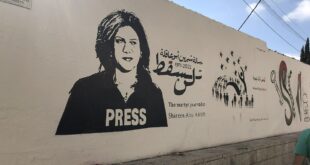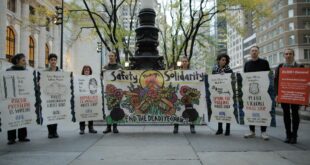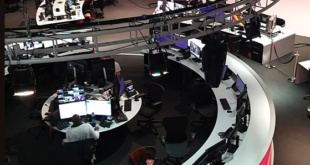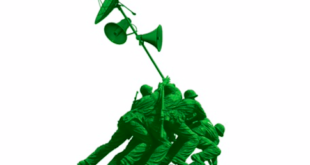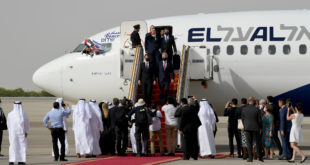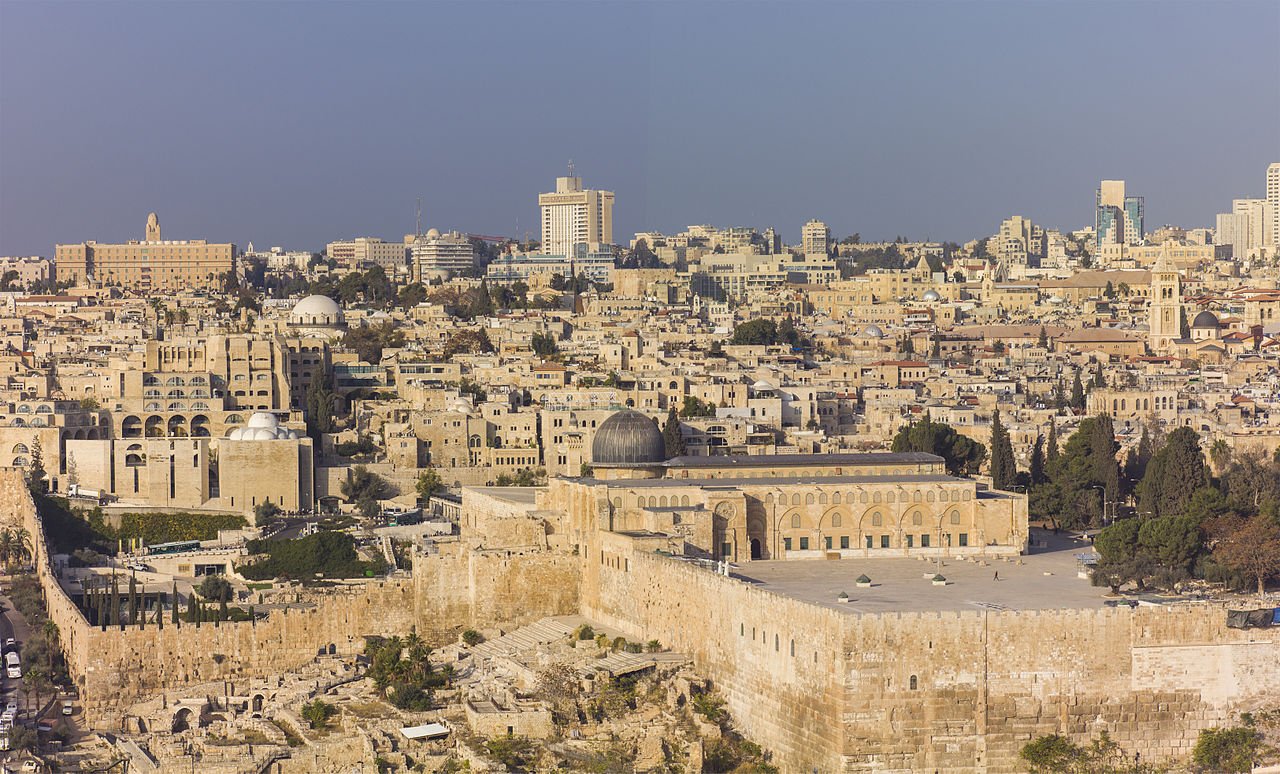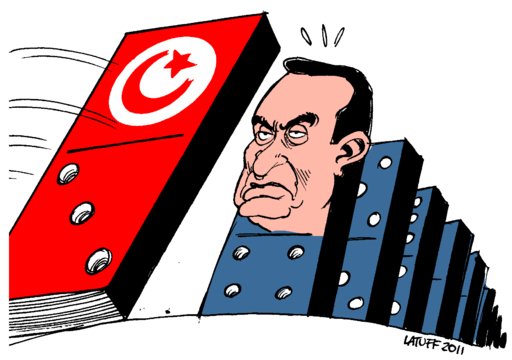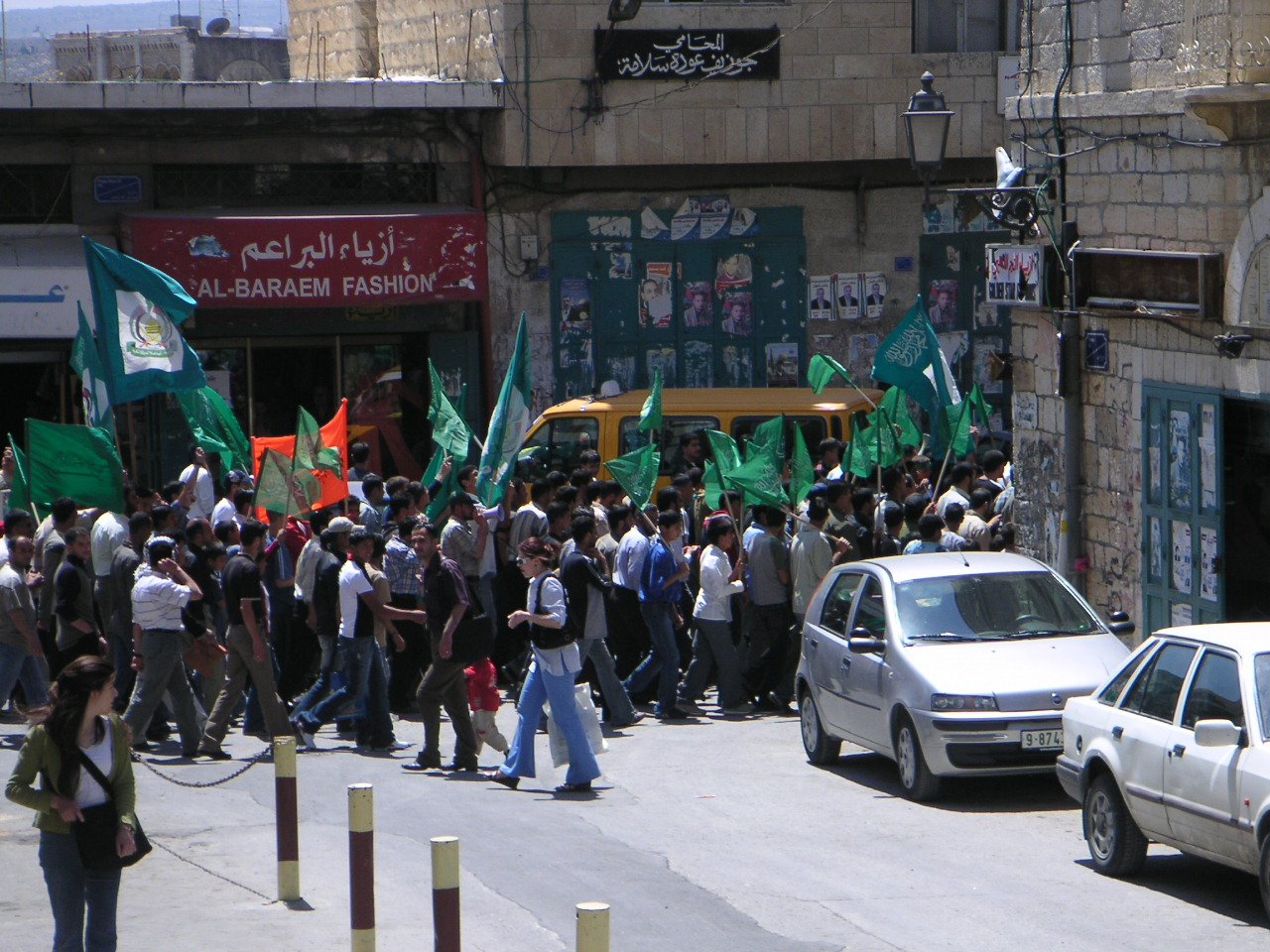Abstract This study examines the digital practices and online discourses of Hamas on Twitter, with a specific focus on the Palinfoen account linked to the Palestinian Information Centre (PIC). The study examines 3,500 tweets related to events in Palestine, which were either tweeted or retweeted by the Palinfoen account. To …
Read More »Palestine/Israel
Weaponizing Media and the Dangers of Subjective Truth: Reflections on the “Arab Media Between Conflict and Peace” panel
In contemporary conflicts, knowing the enemy—the first lesson in any war—has become elusive. With fewer boots on the ground, less interstate conflict, and more fractured and violent terrorist factions, knowing exactly who one is fighting has become increasingly difficult. Accordingly, information warfare, the control of the narrative, has arguably become …
Read More »Pathways to Global Justice: Turning Points, Media, and Palestine Solidarity among Diaspora Jews
Abstract This article examines the processes by which Jewish Americans become involved in Palestine solidarity activism through a case study of the non-profit organization, Jewish Voice for Peace. This study finds American Jews tend to attribute their support for Palestine to historical events and media rather than planned activities such …
Read More »Book Review | Routledge Handbook on Arab Media
First Edition - Edited By Noureddine Miladi, Noha Mellor (Routledge, 2020) The Routledge Handbook on Arab Media is an encyclopedic depiction of the history, roles, models of ownership, and regulations of print, broadcast, and online media in 20 Arab countries out of the 22 Arab countries represented in the Arab …
Read More »Information At War: Hamas vs. the IDF
Excerpted from Information at War: Journalism, Disinformation, and Modern Warfare To be published by Polity Books, summer 2021 The persistent conflict between Israel and Hamas only occasionally attracts much attention beyond its own region, but for the women, men, and children on the ground this is not a “small” war. …
Read More »Precedented History: Arab Media Coverage of the Israeli – UAE – Bahrain Normalization Agreement
On September 16, 2020, U.S. president Donald Trump hosted the signing ceremony for the tripartite diplomatic normalization agreement, known as the Abraham Accords, between the United Arab Emirates (UAE), Bahrain, and Israel at the White House. The UAE is the third Arab country to declare normalization with Israel after Egypt …
Read More »Mohammed Assaf’s victory five years on: Arab Idol and the Zionist colonization of Palestine
Abstract This essay, based on the author’s fieldwork on Palestinian music and oral history, examines the position of singer and Arab Idol winner Mohammed Assaf in relation to the contemporary Palestinian struggle and the wider play of power in the Arab world. The issues discussed gravitate towards three main themes: …
Read More »Shining New Light on the Palestinian Cause: The Unintended Consequences of Trump’s Jerusalem Declaration
A few days before U.S. President Donald Trump declared that America would recognize Jerusalem as the capital of Israel, a number of Arab heads of state—including the leaders of Jordan, Saudi Arabia, and the Palestinian Authority (not yet a state but one in the making since Oslo)—were informed that Trump …
Read More »The Arab Spring in Israeli Media and Emergent Conceptions of Citizenship
Abstract This article returns to 2011 and the beginning of the Arab Spring in order to ask how the Israeli middle class came to draw similarities between their conditions and those of the Arab citizens who had risen against authoritarian rule. This question is also about the movement of ideas …
Read More »The Politics of Representation on Social Media: The Case of Hamas during the 2014 Israel–Gaza Conflict
Abstract Alongside the military confrontation that took place in the Hamas-ruled Gaza Strip in July and August 2014, a battle in the media sector was also underway. This study focuses on the agenda of Hamas during different stages of the psychological war between the two sides involved, namely itself and …
Read More » Arab Media & Society The Arab Media Hub
Arab Media & Society The Arab Media Hub
